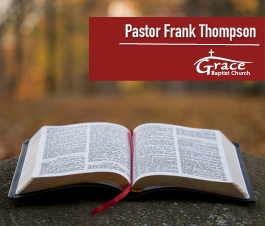
Today, I stand in the company of great theologians, preachers, teachers, missionaries, and evangelists to proclaim exactly the opposite. I join the ranks of reformers like William Tyndale, John Wycliffe, John Calvin, Huldrych Zwingli, John Huss, John Knox, and Martin Luther. I sing with the poets Isaac Watts and John Newton and preach with George Whitefield, Jonathan Edwards, and Charles Spurgeon.
I respond to the call of pioneer missionary William Carey, who stirred his slumbering Calvinist generation to follow the command of Christ and make disciples of all nations.
I place my theology alongside those of John Owen, A. H. Strong, William Shedd, Charles Hodge, B. B. Warfield, Lewis Sperry Chafer, John F. Walvoord, Donald Grey Barnhouse, and Ray Stedman. And I am numbered alongside my contemporaries John Stott, R. C. Sproul, John Piper, John MacArthur, and J. I. Packer.
Today I stand in a great company of sound biblical scholars to declare that God not only created humanity and directed our past, He has already shaped our future. “Our God is in the heavens; He does whatever He pleases” (Ps. 115:3).
Coming to terms with the doctrine of predestination requires a dramatic shift in our perspective. We emerge from the womb and progress through childhood viewing the universe with ourselves at the center. Then something wondrous happens at some point in the process of maturing—for most healthy adults, anyway. We suddenly realize that the world extends beyond the circle of our own horizon and that others see the same world from a different viewpoint. Soon, the universe no longer revolves around us, and we accept that our little circle is but a very small part of a much greater reality.
The same is true of salvation!
Chuck Swindoll
Shattering Myths of Predestination
Myth 1 Predestination Promotes Arrogance
Myth 2 Predestination Promotes Anxiety
Myth 3 Predestination Promotes Apathy
Myth 4 Predestination Promotes Amorality
David Jeremiah
